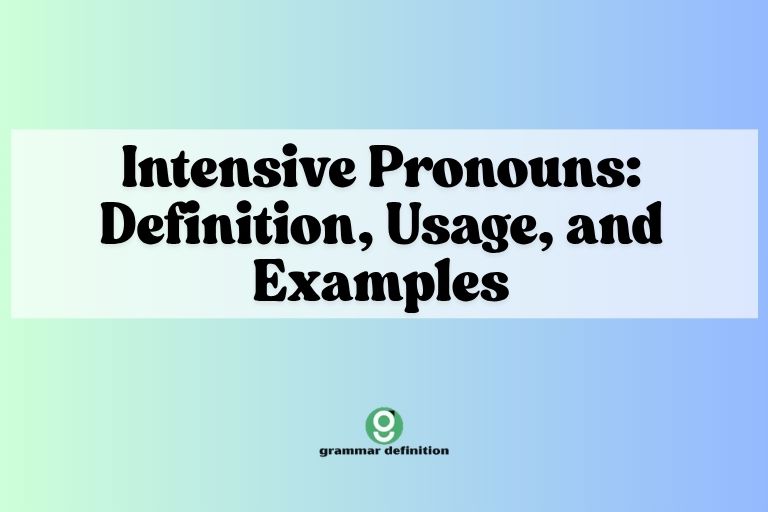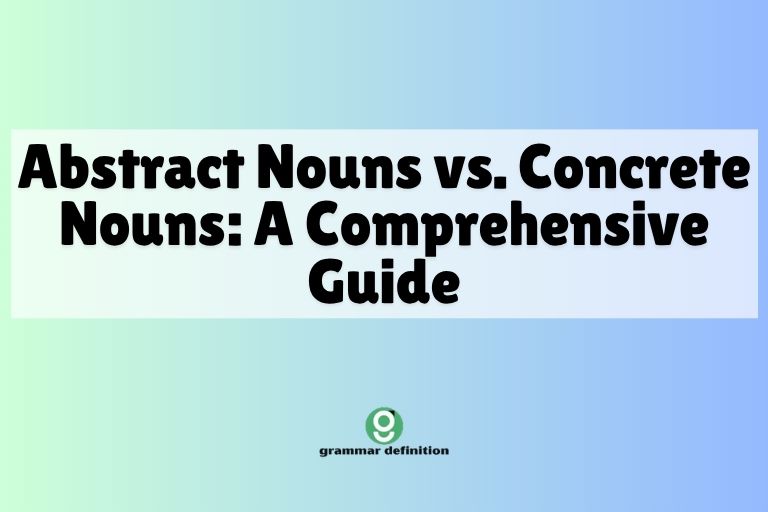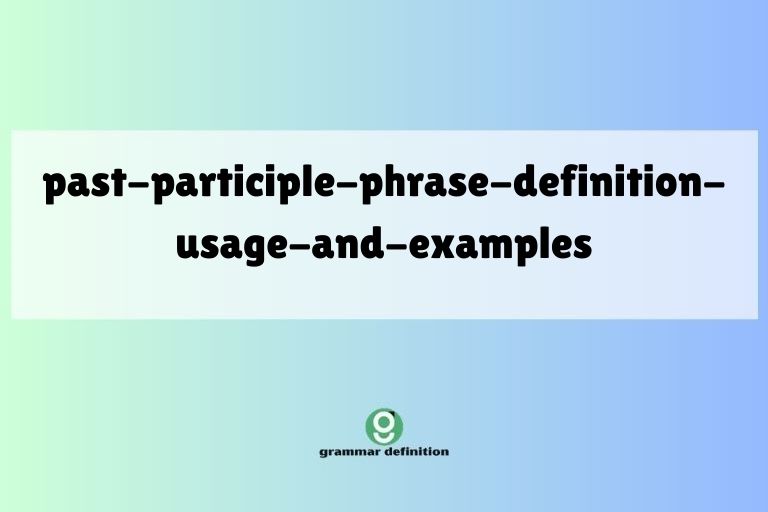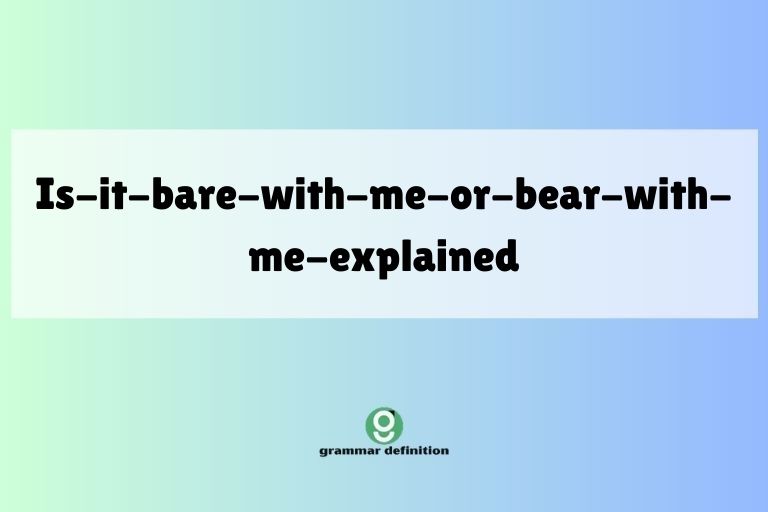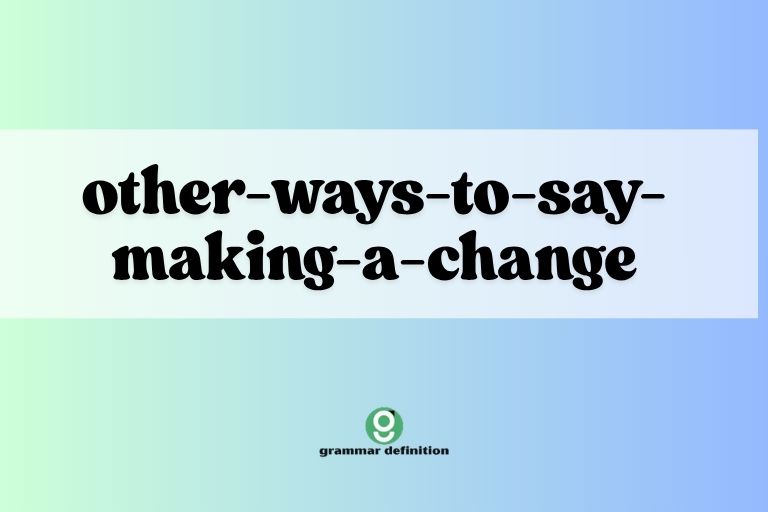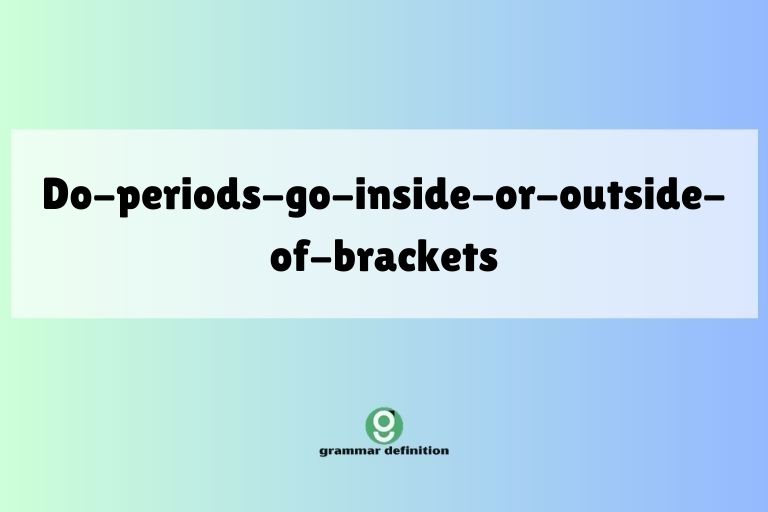Mastering Future Tense: A Comprehensive Guide to All 4 Forms
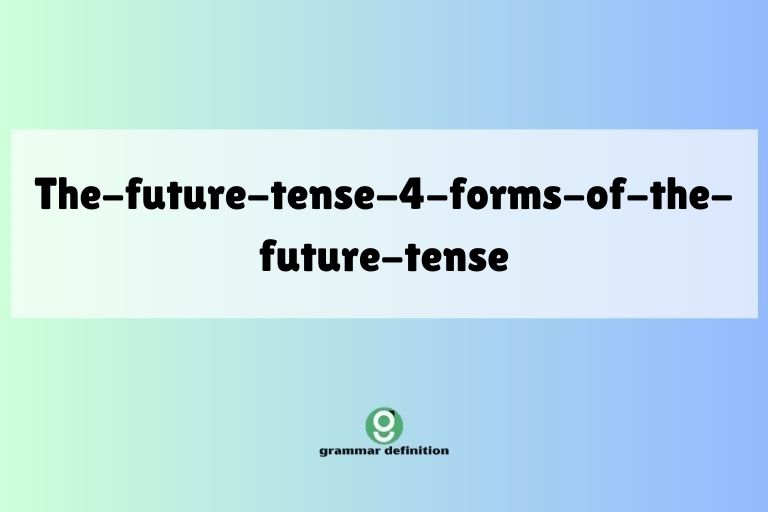
The future tense is a fundamental aspect of English grammar, enabling us to discuss events that will happen. Understanding and using the different forms of the future tense correctly is crucial for clear and effective communication.
This article provides a comprehensive guide to the four main forms of the future tense: simple future (will/shall), be going to, present continuous, and simple present. Each form has specific uses and nuances, which this guide will clarify through detailed explanations, numerous examples, and practice exercises.
This guide benefits English learners of all levels, from beginners to advanced speakers, by providing a solid foundation and advanced insights into future tense usage.
Table of Contents
- Introduction
- Definition of Future Tense
- Structural Breakdown
- Types of Future Tense
- Examples
- Usage Rules
- Common Mistakes
- Practice Exercises
- Advanced Topics
- FAQ
- Conclusion
Introduction
The future tense is an essential component of English grammar, allowing us to express actions or events that are expected to occur in the time ahead. Mastering the future tense is not just about learning a set of rules; it’s about understanding how to convey intentions, predictions, schedules, and arrangements.
This article aims to provide a comprehensive understanding of the four main future tense forms, offering clarity on their structures, uses, and subtle differences. By delving into each form with detailed explanations, examples, and practical exercises, we will equip you with the knowledge and confidence to use the future tense accurately and effectively.
Whether you are a beginner seeking to grasp the basics or an advanced learner aiming to refine your understanding, this guide offers valuable insights and practical tools. We will explore the nuances of each form, helping you choose the most appropriate tense for any given context.
By understanding the subtleties of each tense, you can communicate your ideas with precision and avoid common errors. With consistent practice and a clear understanding of the concepts presented in this article, you will significantly improve your fluency and accuracy in English.
Definition of Future Tense
The future tense in English grammar refers to verb forms that indicate actions or states that will occur at some point in the future. It allows us to express predictions, intentions, plans, promises, and scheduled events.
The future tense is not a single, monolithic entity; rather, it encompasses several different forms, each with its unique nuances and applications. These forms include the simple future (using “will” or “shall”), the “be going to” future, the present continuous used for future arrangements, and the simple present used for scheduled events.
The primary function of the future tense is to place an event or state in the temporal dimension beyond the present moment. It provides a way to discuss possibilities, expectations, and certainties related to upcoming events.
The choice of which future tense form to use depends on various factors, including the speaker’s intention, the degree of certainty, and the nature of the event. Understanding these factors is crucial for effective communication.
In essence, the future tense enables us to plan, predict, and coordinate actions and events in our lives.
Structural Breakdown
Understanding the structural elements of the future tense forms is essential for accurate usage. Each form has a distinct structure that dictates how it is constructed and used in sentences.
Let’s break down the structure of each of the four main forms of the future tense:
- Simple Future (will/shall): This form uses the auxiliary verbs “will” or “shall” followed by the base form of the main verb. The structure is: Subject + will/shall + base form of verb. For example, “I will go to the store tomorrow.”
- “Be Going To” Future: This form uses the auxiliary verb “be” (am, is, are) followed by “going to” and the base form of the main verb. The structure is: Subject + be (am/is/are) + going to + base form of verb. For example, “She is going to study abroad next year.”
- Present Continuous for Future: This form uses the present continuous tense (am/is/are + verb-ing) to express future arrangements. The structure is: Subject + be (am/is/are) + verb-ing. For example, “They are meeting at 3 PM tomorrow.”
- Simple Present for Future: This form uses the simple present tense to express scheduled events or timetables. The structure is: Subject + base form of verb (or verb + -s/-es for third-person singular). For example, “The train leaves at 10 AM.”
Each of these structures serves a specific purpose and conveys different nuances of meaning. Mastering these structures is critical for using the future tense accurately and effectively.
By understanding the underlying structural rules, you can construct grammatically correct sentences and communicate your intentions clearly.
Types of Future Tense
The English language offers several ways to express future actions or states. While all these forms refer to the future, they each carry slightly different meanings and are used in different contexts.
Let’s explore the four primary forms of the future tense in detail:
Simple Future (will/shall)
The simple future tense, formed with “will” or “shall,” is used to express predictions, spontaneous decisions, offers, promises, and future facts. “Will” is used with all subjects, while “shall” is traditionally used with “I” and “we,” although “will” is now more common in modern English.
Predictions: “It will rain tomorrow.”
Spontaneous Decisions: “I will answer the phone.”
Offers: “I will help you with your homework.”
Promises: “I will be there for you.”
Future Facts: “The sun will rise tomorrow.”
“Be Going To” Future
The “be going to” future is used to express plans, intentions, and predictions based on present evidence. It indicates a pre-existing intention or a strong likelihood of something happening.
Plans: “I am going to travel to Europe next year.”
Intentions: “She is going to learn Spanish.”
Predictions based on evidence: “Look at those dark clouds! It is going to rain.”
Present Continuous for Future
The present continuous tense (am/is/are + verb-ing) can be used to express future arrangements or appointments. It indicates a fixed plan or a scheduled event with a specific time and place.
Arrangements: “We are meeting for dinner tonight.”
Appointments: “He is seeing the doctor tomorrow morning.”
Simple Present for Future
The simple present tense is used to express future events that are scheduled or timetabled, such as transportation schedules, movie times, or class schedules. It indicates events that are fixed and not subject to change.
Schedules: “The train leaves at 6 AM.”
Timetables: “The movie starts at 8 PM.”
Examples
Understanding the different forms of the future tense requires seeing them in action. Here are several examples illustrating each form, providing a clear picture of how they are used in various contexts.
Simple Future (will/shall) Examples
The following table showcases the usage of the simple future tense with “will” and “shall” in different scenarios. Notice how “will” is used more universally, while “shall” is primarily used in formal contexts with “I” and “we.”
| Sentence | Category |
|---|---|
| I will go to the store later. | Spontaneous Decision |
| She will be happy to see you. | Prediction |
| They will arrive tomorrow morning. | Prediction |
| We will help you with your project. | Offer |
| He will graduate next year. | Future Fact |
| It will be a great party. | Prediction |
| I will call you later tonight. | Promise |
| She will probably forget. | Prediction |
| They will not come to the party. | Prediction |
| We will visit Paris next summer. | Plan |
| He will start his new job soon. | Future Fact |
| It will be interesting to see what happens. | Prediction |
| I shall help you carry that bag. | Offer (Formal) |
| We shall overcome this challenge. | Promise (Formal) |
| I will always remember you. | Promise |
| She will understand eventually. | Prediction |
| They will announce the results tomorrow. | Future Fact |
| We will celebrate our anniversary next month. | Plan |
| He will definitely be there on time. | Prediction |
| It will be a long and difficult journey. | Prediction |
| I will think about it and let you know. | Spontaneous Decision |
| She will probably arrive late. | Prediction |
| They will finish the project by Friday. | Future Fact |
| We will have a meeting next week. | Plan |
| He will be promoted soon. | Future Fact |
| It will get better with time. | Prediction |
“Be Going To” Future Examples
The “be going to” future is used to express plans, intentions, and predictions based on present evidence. The table below provides examples of how this form is used in different contexts.
| Sentence | Category |
|---|---|
| I am going to visit my parents next weekend. | Plan |
| She is going to study medicine. | Intention |
| They are going to move to a new city. | Plan |
| We are going to have a picnic on Sunday. | Plan |
| He is going to learn how to play the guitar. | Intention |
| It is going to rain; look at those clouds! | Prediction (based on evidence) |
| I am going to start exercising regularly. | Intention |
| She is going to bake a cake for the party. | Plan |
| They are going to renovate their house. | Plan |
| We are going to watch a movie tonight. | Plan |
| He is going to apply for a new job. | Intention |
| It is going to be a difficult test. | Prediction (based on evidence) |
| I am going to read that book you recommended. | Intention |
| She is going to attend the conference next month. | Plan |
| They are going to buy a new car. | Plan |
| We are going to visit the museum this afternoon. | Plan |
| He is going to improve his English skills. | Intention |
| It is going to snow tonight. | Prediction (based on evidence) |
| I am going to cook dinner tonight. | Intention |
| She is going to travel around the world. | Plan |
| They are going to start a new business. | Plan |
| We are going to celebrate our anniversary. | Plan |
| He is going to run a marathon. | Intention |
| It is going to be a long day. | Prediction (based on evidence) |
| I am going to take a break. | Intention |
Present Continuous for Future Examples
The present continuous tense is used for future arrangements. The following table includes examples of how to use this form correctly.
| Sentence | Category |
|---|---|
| I am meeting John for lunch tomorrow. | Arrangement |
| She is leaving for Paris next week. | Arrangement |
| They are getting married in June. | Arrangement |
| We are having a party on Saturday. | Arrangement |
| He is visiting his grandmother this weekend. | Arrangement |
| It is raining later this afternoon (uncommon, but possible if part of a forecast). | Arrangement |
| I am flying to New York on Monday. | Arrangement |
| She is attending a conference next month. | Arrangement |
| They are moving to a new house next year. | Arrangement |
| We are watching a movie tonight. | Arrangement |
| He is starting a new job next week. | Arrangement |
| It is happening tomorrow afternoon. | Arrangement |
| I am seeing the doctor tomorrow morning. | Arrangement |
| She is performing in a play next month. | Arrangement |
| They are celebrating their anniversary next week. | Arrangement |
| We are going to the beach this summer. | Arrangement |
| He is taking a vacation in July. | Arrangement |
| It is opening next Friday. | Arrangement |
| I am presenting the report next week. | Arrangement |
| She is hosting a dinner party. | Arrangement |
| They are launching a new product next month. | Arrangement |
| We are visiting the museum on Saturday. | Arrangement |
| He is attending the seminar tomorrow. | Arrangement |
| It is premiering next week. | Arrangement |
| I am leaving for vacation next Friday. | Arrangement |
Simple Present for Future Examples
The simple present tense is used for scheduled future events. Examine the table below for different examples of how to use this tense.
| Sentence | Category |
|---|---|
| The train leaves at 10 AM. | Schedule |
| The movie starts at 7 PM. | Schedule |
| The plane arrives at 3 PM. | Schedule |
| The class begins next Monday. | Schedule |
| The meeting starts at 9 AM. | Schedule |
| The concert begins sharp at 8 PM. | Schedule |
| The store opens at 8 AM tomorrow. | Schedule |
| The bus departs at noon. | Schedule |
| The game starts at 2 PM on Sunday. | Schedule |
| The exhibition opens next week. | Schedule |
| The flight departs from gate 12. | Schedule |
| The show starts in five minutes. | Schedule |
| The play begins at 7:30 PM. | Schedule |
| The conference starts on Tuesday. | Schedule |
| The seminar begins promptly at 10 AM. | Schedule |
| The sale ends on Friday. | Schedule |
| The tour starts at the entrance. | Schedule |
| The course begins in September. | Schedule |
| The presentation starts in the auditorium. | Schedule |
| The session begins after lunch. | Schedule |
| The event starts at 6 PM. | Schedule |
| The program begins with an introduction. | Schedule |
| The ceremony starts at 11 AM. | Schedule |
| The festival begins next weekend. | Schedule |
| The broadcast starts at 9 PM. | Schedule |
Usage Rules
Using the future tense correctly involves understanding the nuances of each form and applying specific rules. Each future tense form has distinct usage guidelines, and adhering to these rules ensures clarity and accuracy in communication.
- Simple Future (will/shall): Use “will” for general predictions, spontaneous decisions, offers, and promises. Use “shall” (less common) for offers and suggestions, primarily with “I” and “we” in formal contexts. Example: “I will help you with that,” “Shall we go for a walk?”
- “Be Going To” Future: Use “be going to” for expressing pre-existing plans, intentions, and predictions based on present evidence. Example: “I am going to study abroad next year,” “It is going to rain; look at those clouds.”
- Present Continuous for Future: Use the present continuous (am/is/are + verb-ing) for definite future arrangements or appointments with a specific time and place. Example: “We are meeting for dinner tonight,” “She is leaving for Paris next week.”
- Simple Present for Future: Use the simple present for scheduled future events, such as timetables, transportation schedules, and fixed events. Example: “The train leaves at 10 AM,” “The movie starts at 7 PM.”
Understanding these rules and applying them consistently will help you use the future tense accurately and effectively. Remember to consider the context and your intention when choosing the appropriate future tense form.
Common Mistakes
Even experienced English learners can make mistakes when using the future tense. Recognizing and correcting these errors is crucial for improving accuracy and fluency.
Here are some common mistakes and how to avoid them:
- Incorrect Use of “Will” and “Going To”: Confusing “will” for spontaneous decisions with “going to” for pre-planned intentions.
- Incorrect: “I am going to answer the door.” (when deciding spontaneously)
- Correct: “I will answer the door.”
- Incorrect: “I will visit my parents next weekend.” (when it’s already planned)
- Correct: “I am going to visit my parents next weekend.”
- Misusing Present Continuous for General Future Events: Using the present continuous for general future events instead of specific arrangements.
- Incorrect: “I am going to the party tomorrow.” (when it’s a general plan, not a firm arrangement)
- Correct: “I am going to go to the party tomorrow.” or “I am going to the party tomorrow, I think.”
- Correct: “I am going to the party tomorrow.” (when it’s a firm arrangement)
- Using Simple Present for Unscheduled Events: Using the simple present for events that are not scheduled or timetabled.
- Incorrect: “I see my friend tomorrow.”
- Correct: “I am seeing my friend tomorrow.” or “I will see my friend tomorrow.”
- Forgetting “Be” with “Going To”: Omitting the “be” verb (am, is, are) before “going to.”
- Incorrect: “I going to study.”
- Correct: “I am going to study.”
By being aware of these common pitfalls and practicing correct usage, you can significantly improve your accuracy when using the future tense.
Practice Exercises
To solidify your understanding of the future tense, complete the following exercises. Each exercise focuses on a different aspect of the future tense, allowing you to practice and reinforce your knowledge.
Exercise 1: Simple Future (will/shall)
Fill in the blanks with “will” or “shall.”
| Question | Answer |
|---|---|
| I _______ help you with your homework. | will |
| She _______ be there on time. | will |
| They _______ arrive tomorrow morning. | will |
| We _______ go to the beach this weekend. | will |
| He _______ call you later. | will |
| It _______ rain tomorrow. | will |
| I _______ open the door for you. | will |
| She _______ probably forget. | will |
| They _______ not come to the party. | will |
| We _______ overcome this challenge. | shall |
Exercise 2: “Be Going To” Future
Fill in the blanks with the correct form of “be going to.”
| Question | Answer |
|---|---|
| I _______ visit my parents next weekend. | am going to |
| She _______ study medicine. | is going to |
| They _______ move to a new city. | are going to |
| We _______ have a picnic on Sunday. | are going to |
| He _______ learn how to play the guitar. | is going to |
| It _______ rain; look at those clouds! | is going to |
| I _______ start exercising regularly. | am going to |
| She _______ bake a cake for the party. | is going to |
| They _______ renovate their house. | are going to |
| We _______ watch a movie tonight. | are going to |
Exercise 3: Present Continuous for Future
Complete the sentences using the present continuous tense to express future arrangements.
| Question | Answer |
|---|---|
| I _______ (meet) John for lunch tomorrow. | am meeting |
| She _______ (leave) for Paris next week. | is leaving |
| They _______ (get) married in June. | are getting |
| We _______ (have) a party on Saturday. | are having |
| He _______ (visit) his grandmother this weekend. | is visiting |
| I _______ (fly) to New York on Monday. | am flying |
| She _______ (attend) a conference next month. | is attending |
| They _______ (move) to a new house next year. | are moving |
| We _______ (watch) a movie tonight. | are watching |
| He _______ (start) a new job next week. | is starting |
Exercise 4: Simple Present for Future
Complete the sentences using the simple present tense to express scheduled future events.
| Question | Answer |
|---|---|
| The train _______ (leave) at 10 AM. | leaves |
| The movie _______ (start) at 7 PM. | starts |
| The plane _______ (arrive) at 3 PM. | arrives |
| The class _______ (begin) next Monday. | begins |
| The meeting _______ (start) at 9 AM. | starts |
| The concert _______ (begin) sharp at 8 PM. | begins |
| The store _______ (open) at 8 AM tomorrow. | opens |
| The bus _______ (depart) at noon. | departs |
| The game _______ (start) at 2 PM on Sunday. | starts |
| The exhibition _______ (open) next week. | opens |
Advanced Topics
For advanced learners, understanding more complex aspects of the future tense can further refine their English proficiency. These topics delve into nuances and subtleties that are often overlooked but can significantly enhance your communication skills.
- Future Perfect Tense: This tense (will have + past participle) describes an action that will be completed before a specific time in the future. Example: “By next year, I will have graduated from college.”
- Future Perfect Continuous Tense: This tense (will have been + verb-ing) describes an action that will have been in progress for a period of time before a specific time in the future. Example: “By the end of the year, I will have been working here for ten years.”
- Using “Would” for Future in the Past: “Would” is used to express future actions from a past perspective. Example: “I knew that she would arrive late.”
- Conditional Sentences: Understanding how the future tense interacts with conditional clauses (if-clauses) is crucial for expressing hypothetical situations. Example: “If it rains, I will stay home.”
Exploring these advanced topics will provide you with a deeper understanding of the future tense and its various applications, allowing you to communicate with greater precision and sophistication.
FAQ
Here are some frequently asked questions about the future tense, along with detailed answers to clarify common points of confusion.
- What is the difference between “will” and “going to”?
While both “will” and “going to” express future actions, “will” is often used for spontaneous decisions, offers, promises, and general predictions, while “going to” is used for pre-existing plans, intentions, and predictions based on present evidence. For instance, “I will answer the phone” (spontaneous) versus “I am going to study abroad next year” (pre-planned).
- Can I use the present continuous for all future events?
No, the present continuous is specifically used for future arrangements that are fixed and scheduled, often with a specific time and place. It’s not appropriate for general future events or predictions. For example, “We are meeting for dinner tonight” (arranged) is correct, but “I am going to the party tomorrow” (general plan) is less precise and might be better expressed with “will” or “going to.”
- When should I use the simple present for future events?
The simple present is used for scheduled future events, such as timetables, transportation schedules, and fixed events that are not subject to change. For example, “The train leaves at 10 AM” and “The movie starts at 7 PM” are correct because they refer to fixed schedules.
- Is it always wrong to use “shall” with “you,” “he,” “she,” “it,” or “they”?
In modern English, “shall” is primarily used with “I” and “we” for offers, suggestions, or formal statements. Using “shall” with other pronouns is generally considered archaic or overly formal. “Will” is the more common and versatile choice for all subjects.
- How do I form negative sentences in the future tense?
To form negative sentences with “will,” use “will not” (or the contraction “won’t”) before the base form of the verb. With “going to,” use “am/is/are not going to” before the base form of the verb. Examples: “I will not go” or “I won’t go,” and “She is not going to study.”
- How do I form questions in the future tense?
To form questions with “will,” invert the subject and “will.” With “going to,” invert the subject and the “be” verb (am, is, are). Examples: “Will you go?” and “Are you going to study?”
- What are conditional sentences and how do they relate to the future tense?
Conditional sentences express hypothetical situations and their consequences. They often involve the future tense in the main clause. The most common structure is “If + simple present, will + base form.” Example: “If it rains, I will stay home.”
- Can I use “going to” to express a future fact?
While “going to” is typically used for plans, intentions, or predictions based on present evidence, it’s not the best choice for expressing future facts. “Will” is generally more appropriate for stating future facts
or general predictions. For example, “The sun will rise tomorrow” is better than “The sun is going to rise tomorrow.”
Conclusion
Mastering the future tense in English involves understanding the nuances and appropriate usage of its four primary forms: simple future (will/shall), “be going to,” present continuous, and simple present. Each form serves a specific purpose, whether expressing predictions, intentions, arrangements, or scheduled events.
By grasping the structural rules, usage guidelines, and common mistakes associated with each form, you can significantly enhance your ability to communicate effectively about future actions and events.
Through detailed explanations, numerous examples, and practical exercises, this guide has provided you with the tools and knowledge necessary to confidently navigate the complexities of the future tense. Whether you are a beginner or an advanced learner, consistent practice and a keen awareness of context will enable you to use the future tense accurately and fluently.
Embrace the opportunity to explore and experiment with these forms in your everyday communication, and you will undoubtedly improve your overall English proficiency.

